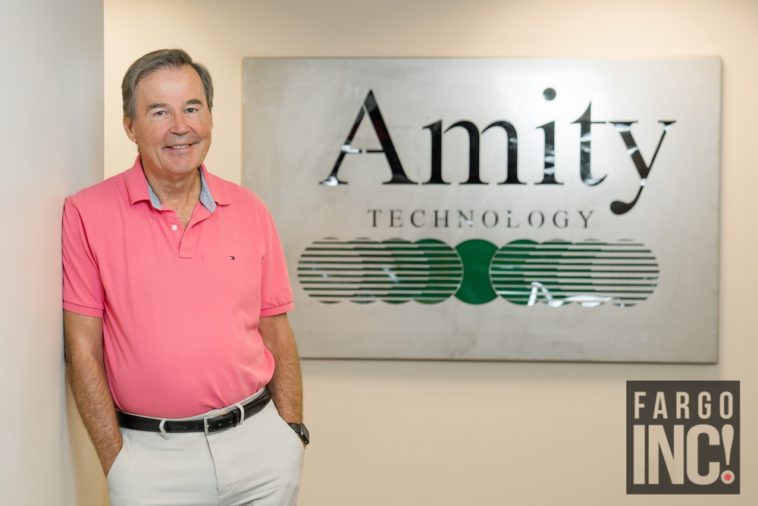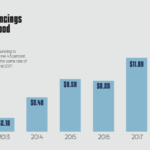By Kara Lidberg
Photos by Hillary Ehlen
When you walk into Amity Technology, the first thing you may notice is the walls. They are full of old photos and paintings, representations of years past and decades of experience, knowledge and passion passed down through generations to the company’s president — Howard Dahl.
As a speaker at the Cultivate Conference in November, Dahl believes that his 35 years’ worth of industry experience regarding precision agriculture is what qualifies him to participate. “I’ve lived within the precision ag space since 1984 when we purchased a soil sampler company,” he said. “We were the first business to do variable-rate fertilizer application, to manage nutrients properly in real-time, so we have a deep heritage in the topic.”
A central question facing and worrying many agriculturalists today is whether or not by 2050 the industry will be capable of feeding the 10 billion people that are estimated to populate the earth. Dahl, however, was seemingly nonchalant on the subject.
“If you think back to the very first Earth Day in 1970,” Dahl began, “and if you, like me, read ‘The Population Bomb’ by Dr. Paul R. Ehrlich,” a best-selling book that was written in 1968 foretelling of global famine, “then you would’ve been so pessimistic about the future.”
Dahl went on to share that with the earth’s population at approximately 3.5 billion, people were instilled with the fear of how the world would possibly be able to accommodate feeding five billion people. “We were told that there was going to be mass starvation everywhere because food production wouldn’t be able to keep up.”
As the population grew, however, there didn’t seem to be many issues. “Everybody was wrong,” Dahl said, “so this idea that we’re going to have a difficult time feeding more people, especially with technology making a major impact on production, does not make me feel as pessimistic as society and the media seem to be.”
Dahl places faith in Africa. “The continent has so much potential to produce food, and it’s just beginning to develop agriculturally in a number of markets,” he said, also mentioning that approximately 65 percent of the world’s uncultivated arable land is in Africa.
The obstacle lies within the continent’s government corruption, making it a safe place for investment, and the lack of plant breeding which makes developing seed varieties necessary. Regardless, Dahl resumes his optimism. “I think there is going to be tremendous growth in African agriculture as adequate income for farmers comes in, allowing them to invest heavily.”
But how can we make those farmers more profitable?
Dahl sees drone technology as a major plus. “If I have a field of 160 acres and only 20 of those acres have a disease, I can spray those 20 versus the whole area,” he said, saving the farmer financially, environmentally and chemically. “Fertilizer management and knowing how much I need, at what time and in what spot,” he continued, “allows me to optimize my expenses and therefore, become more profitable.”
FarmQA
The newest endeavor for Dahl is FarmQA, a scouting software used to manage a large quantity of data in one place, empowering farmers to make better decisions regarding their operations.
The FarmQA team is on a mission to help its customers identify problems by giving them the tools and expertise they need to deal with them. “We’re trying to find the balance between customer value and what we can do well that economically makes sense but will also benefit their needs,” Dahl said.
The company has found traction in a wide variety of markets, including niche areas like grass seed, hops and even pineapples. “We’ve had a few of our customers switch from the most popular software used,” he added with a smile. “They say it’s our flexibility and ability to tailor our software to exactly what they want.”




